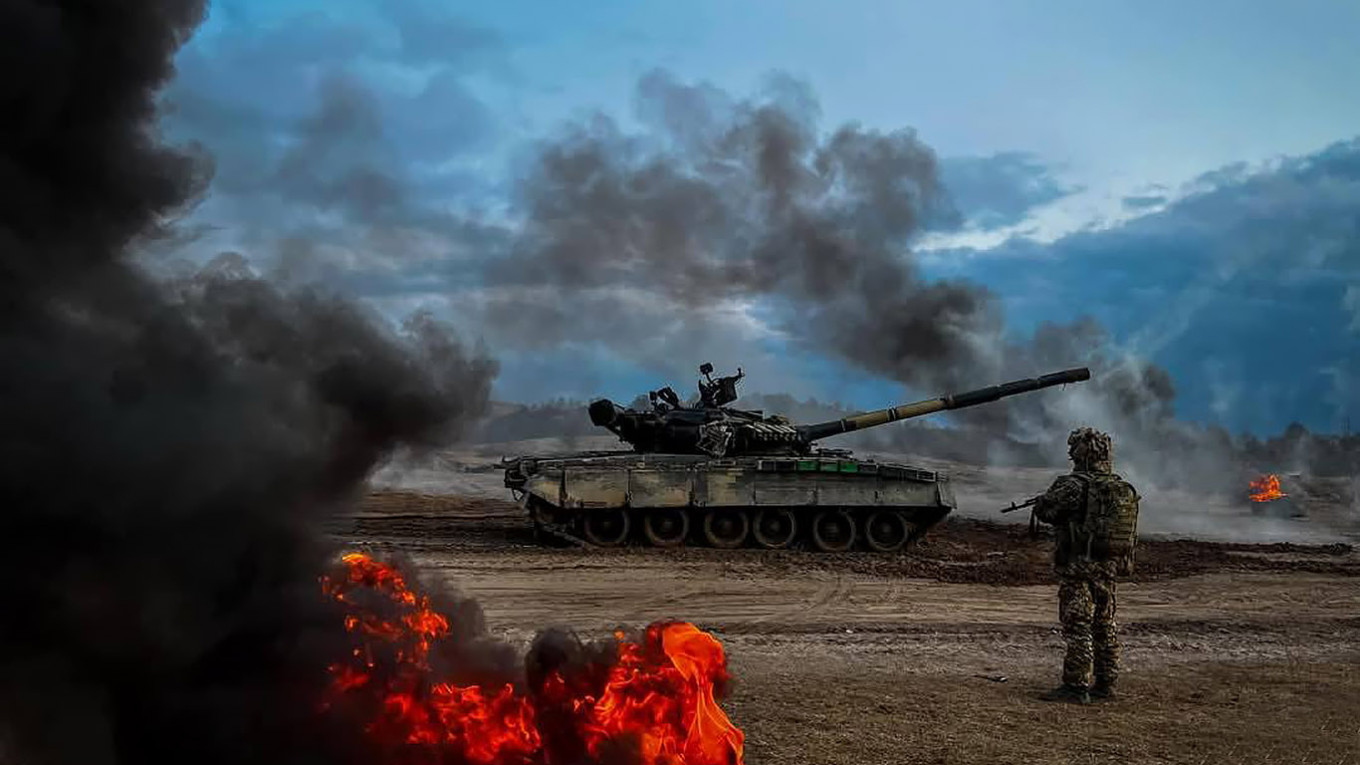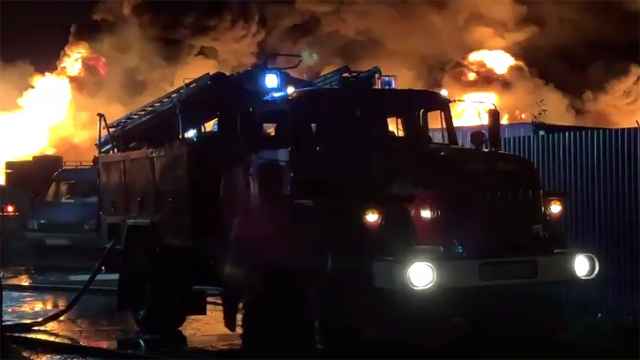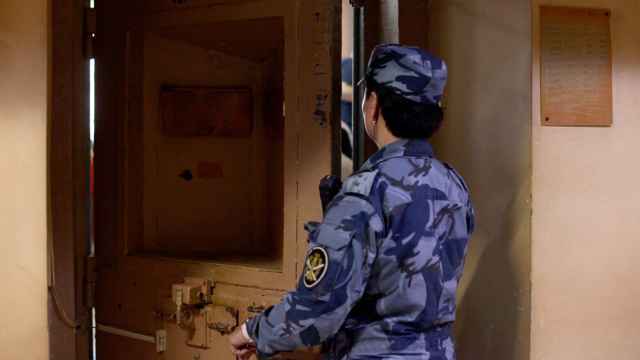By urging Ukraine to conscript 18-year-olds, the West risks a tragic gamble: sacrificing a generation to buy time for Europe's awakening and NATO's hesitation.
Mike Waltz, Donald Trump’s pick for National Security Advisor, recently suggested that Ukraine should lower the draft age from 26 to 18. Framing this as a call for Ukraine to "be all in for democracy," he neglected the obvious irony: while Washington asks Kyiv for its youngest, it sends just enough weapons to prolong the fight but never enough to end it decisively.
The call is in line with the Biden administration approach, which had been met with widespread resistance in Ukraine earlier. Last year Jake Sullivan, Biden’s National Security Advisor, claimed Ukraine’s battlefield struggles stem from a lack of manpower, not weapons. This ignores the hard truth: Ukraine’s manpower crisis is a direct result of the “too little too late” approach.
Ukrainian military analyst Oleksandr Kovalenko pointed out that mobilizing 18-year-olds offers little military advantage. “This age group is too small in size and too young for the brutal psychological demands of war,” he explains. Demographers have also raised red flags. Ella Libanova, director of Ukraine’s Institute of Demography, warns that lowering the draft age would cause a demographic crisis in the future.
Losing the 18-to-25-year-old age group, already one of Ukraine’s smallest due to declining birth rates, is a demographic time bomb set to explode long after the guns fall silent. Such a suggestion puts Ukraine at risk of becoming a hollow shell of a nation.
President Volodymyr Zelensky has been clear about the issue: “The focus should be on missiles and reducing Russia’s military potential, not on sending more of our youth to die.”
He is right. Ukrainians should not send fresh meat to Russia’s guns under increasingly nebulous promises of support.
But the real kicker is not that Ukraine is reluctant to draft its youth. It is the West’s failure to deliver what is truly needed. Ukraine has received less than half of the $177 billion the U.S. allocated to support Kyiv during the full-scale war, Zelensky revealed in an interview with U.S. podcaster Lex Fridman.
The West’s approach to Ukraine is as shortsighted as it is hypocritical. By holding back Moscow, Ukraine is giving the West time to wake up, rearm, rebuild, and rethink its relationship with Russia and its allies. But Ukrainian blood is not infinite, so bold decisions need to be made quickly. Realizing this harsh reality, NATO Secretary-General Mark Rutte, warned that Europe has just five years to revive its defense industries or prepare to learn Russian.
What Ukraine truly needs is not another round of increasingly younger casualties but decisive action to secure its skies. Russia’s massive Jan. 15 missile and drone attack on Ukraine prompted Poland to scramble fighter jets to protect its airspace. Direct involvement in intercepting Russian missiles over Ukraine’s western border is long overdue.
While well-trained and propaganda-driven North Korean soldiers are actively engaging Ukrainian forces — with some already captured — discussions introduced by France and Poland about European boots on the ground have fallen silent. The hope for an internal coup in the Kremlin or another deus ex machina that ends the war has never materialized, now being substituted by overheated hopes to end the war fast. If negotiations fail, as with the more than 200 rounds of Ukraine-Russian peace talks since 2014, an urgent injection of fresh Ukrainian blood might not save the day.
After enduring prolonged restrictions on the use of Western-supplied weaponry — restrictions influenced by fears and electoral calculations — some have been finally lifted, marking a pivotal change in Ukraine's one-arm-tied fight. The "triple-tap" attack tactic, combining drones to distract Russian air defenses, followed by missile strikes and concluding with precision UAV attacks, is very effective at undermining Russia’s capabilities to attack Ukraine.
Andriy Kovalenko, head of Ukraine's official Center Against Disinformation, said that these attacks, utilizing British Storm Shadow cruise missiles and American ATACMS long-range rockets, have significantly damaged Russian infrastructure, including weapons manufacturing facilities, oil refineries and storage warehouses. But overly cautious restrictions on what Ukraine was allowed to do with those weapons meant they had not given Kyiv the advantage they could have.
More Western sanctions against Russia, especially its oil and banking sectors, is a further pillar of defeating Russia. An analysis by the Independent Anti-Corruption Commission of 2,500 components in Russian weapons revealed that a significant portion — 64% — originated from U.S.-based companies, making the United States the largest supplier of electronic components to the Russian war machine. Additionally, numerous components were sourced from European countries, including Switzerland, the Netherlands, Germany and Sweden, highlighting sanctions evasion.
Implementing these and other decisive and timely measures is far more effective against Russian aggression than deploying inexperienced yesterday’s schoolchildren to the front lines. As Zelensky emphasized, "The goal should be to save as many lives as possible, not to preserve weapons in stockpiles." If the West fails to grasp this, it risks sacrificing not only Ukraine's youth but also the very ideals of democracy and human dignity it professes to uphold.
What will happen if this cynical strategy fails? Another 15 million Ukrainians could flee to Europe, joining the 10 million already displaced. Chillingly, Russian troops would likely follow.
A Message from The Moscow Times:
Dear readers,
We are facing unprecedented challenges. Russia's Prosecutor General's Office has designated The Moscow Times as an "undesirable" organization, criminalizing our work and putting our staff at risk of prosecution. This follows our earlier unjust labeling as a "foreign agent."
These actions are direct attempts to silence independent journalism in Russia. The authorities claim our work "discredits the decisions of the Russian leadership." We see things differently: we strive to provide accurate, unbiased reporting on Russia.
We, the journalists of The Moscow Times, refuse to be silenced. But to continue our work, we need your help.
Your support, no matter how small, makes a world of difference. If you can, please support us monthly starting from just $2. It's quick to set up, and every contribution makes a significant impact.
By supporting The Moscow Times, you're defending open, independent journalism in the face of repression. Thank you for standing with us.
Remind me later.








